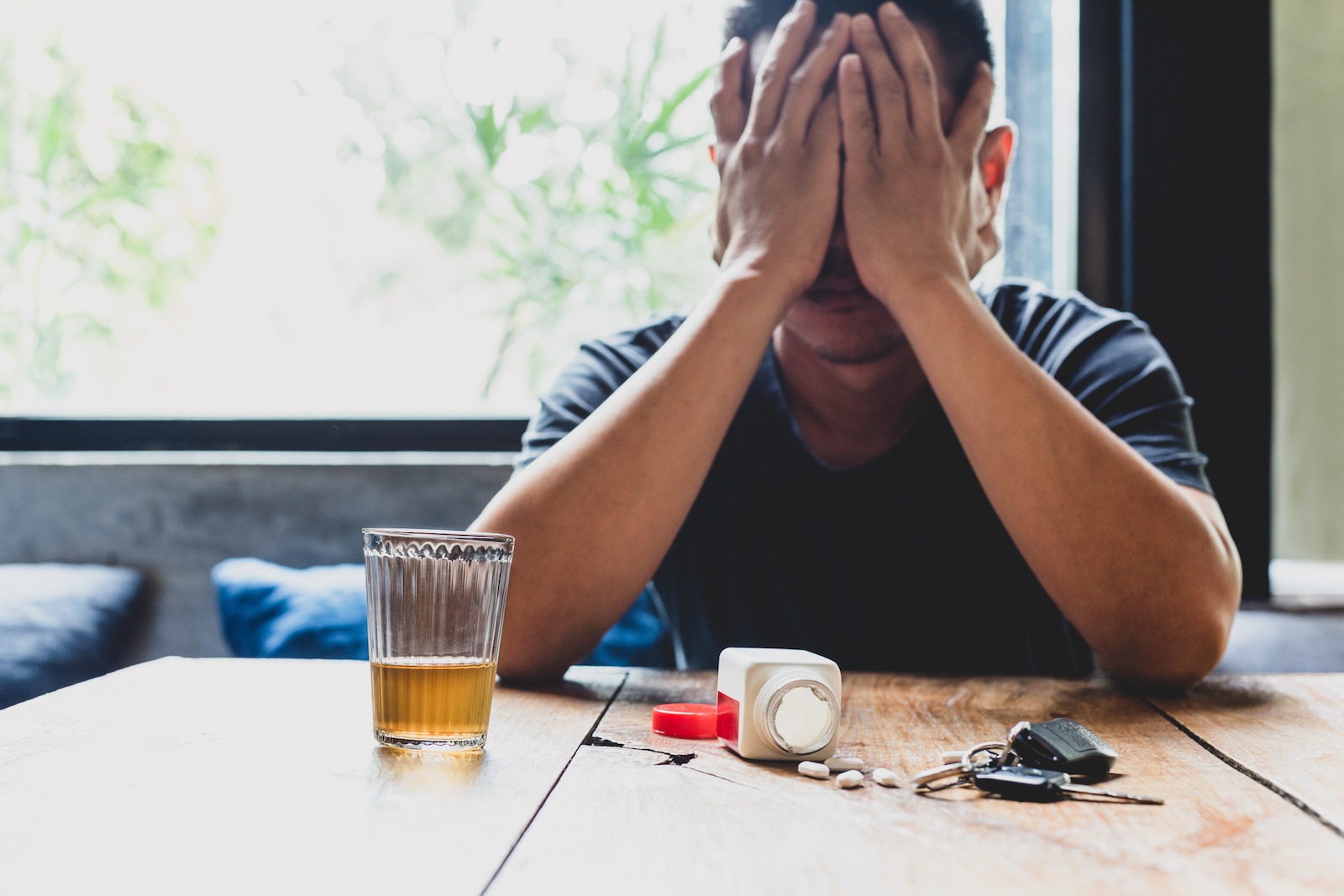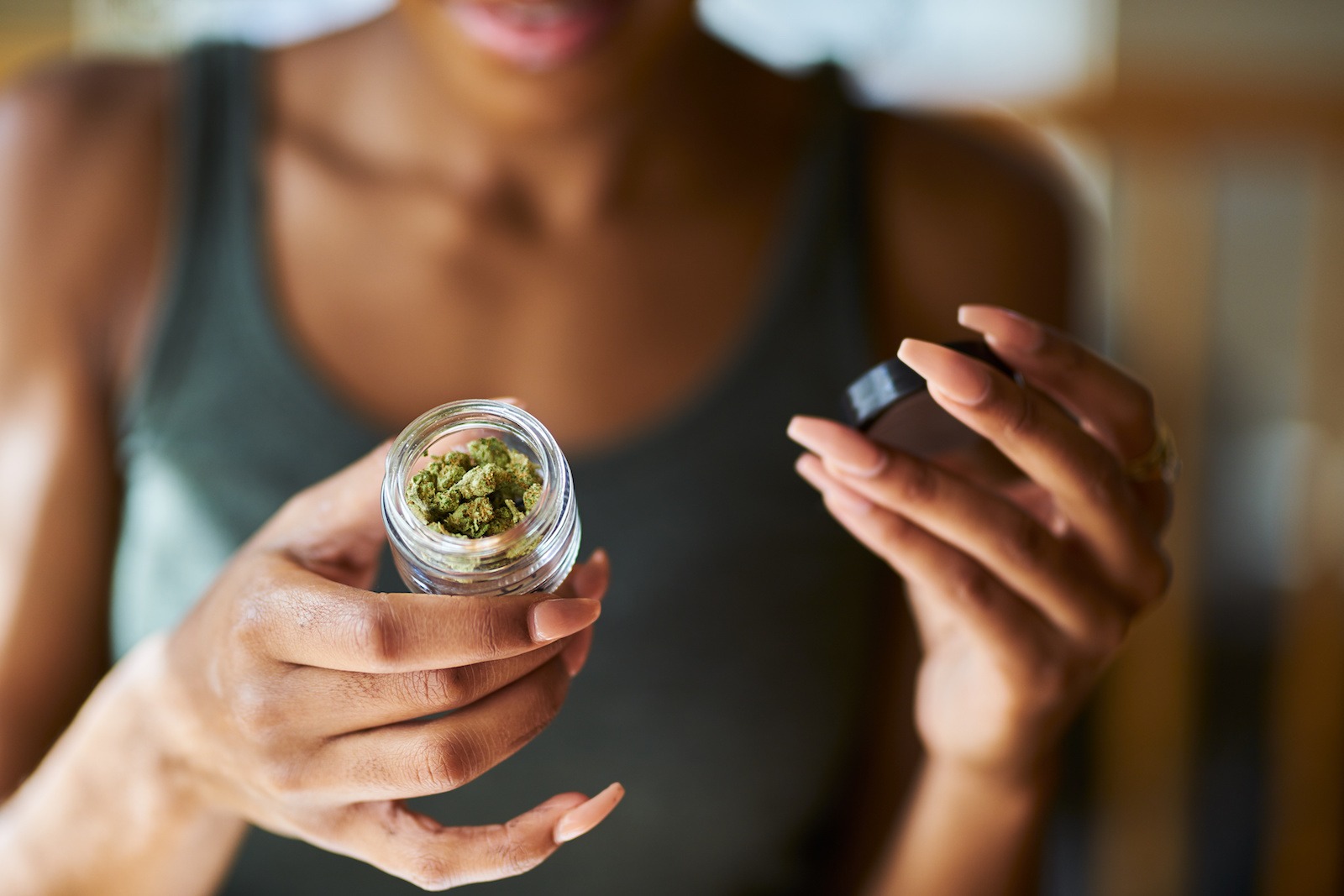Addiction | 7 min read
What Are Gateway Drugs & How Can They Lead To A More Serious Addiction?
Medically Reviewed By

On September 25, 2022
Written By
On September 25, 2022

Gateway drug has been a buzzword in the fight against drug use and addiction in the United States since at least the era of D.A.R.E. school programs. Unfortunately, the failures of D.A.R.E. and similar initiatives made a lot of people skeptical of the idea of gateway drugs. Worse, many programs identified the wrong drugs as gateways to more serious or harmful forms of addiction.
So, let’s put the fearmongering aside and talk about gateway drugs, whether they’re real, their side effects, and how a gateway drug may leave you more vulnerable to other forms of addiction.
Gateway drugs are real, but they probably aren’t the drugs you think they are.
The good news is that being informed can help you make better decisions, avoid addiction risk, and keep you safer now and in the future.
Ready?
Great. Let’s get started.
What Are Some Types Of Gateway Drugs?
So, the classic gateway drug definition is a drug that leads people to take other harder, more dangerous, or more illegal drugs.
Many people think of cannabis as a gateway drug, and it can be for some people, but it’s not the only one you should consider.
While cannabis use often precedes the use of other drugs, there are plenty of other gateway drugs, some of which can be more dangerous than cannabis.
We’re going to talk about more than just the 4 most commonly identified gateways. But let’s start with those. The 4 commonly identified gateways drugs are:
- Cannabis
- Alcohol
- Tobacco
- Caffeine
Before we get into the specifics, all of these gateway drugs, including the ones we will discuss later, are riskier the sooner you start taking them. There are a few reasons, one being that your prefrontal cortex isn’t fully developed until about 25. So any drug use before that age can have a bigger developmental impact, and you’re also more likely to engage in risky behaviors before your prefrontal cortex is fully developed.
Cannabis
Cannabis has long been considered the worst of the 4 classic gateway drugs because it’s the only one federally illegal. However, with legal status changing in some states and public perceptions changing faster, managing cannabis consumption safely and responsibly is more important than ever.
A few problems with cannabis consumption can lead to other kinds of drug addiction. One of the biggest is sourcing the drug. Black market dealers are notorious for getting their customers hooked on harder and more expensive drugs, so there is a small chance that cannabis obtained on the black market will be laced with another smokable drug. Alternatively, dealers may offer customer discounts on other drugs, which can lead to other kinds of addiction and dependence.
However, the classic reason cannabis consumption can be a gateway drug is that it lowers the perception of risk from other drugs. That is particularly dangerous if the person taking cannabis isn’t getting what they want, especially if they’re using cannabis to treat an underlying mental health problem.
Alcohol
Alcohol is a legal drug, but that doesn’t stop it from being a potential gateway drug. For one thing, alcohol lowers your inhibitions, so you may be more likely to take other drugs if they are offered or more likely to seek out other substances on your own.
Additionally, alcohol use disorder can cause mental health problems, especially if you already have at least one mental health disorder. Once that becomes a problem, you may be more likely to seek out other drugs looking for relief from the symptoms of the disorder.
Additionally, alcohol use and drinking culture may make some risk-taking, like taking other drugs, more appealing.
Tobacco
Tobacco use isn’t as directly risky as some other drugs identified as gateway drugs, partly because there aren’t as many drugs popularly thought to have similar effects.
However, because the barrier to smoking is lower if you already smoke or use tobacco products, you may be more willing to experiment with a drug like cannabis, which can lead to further drug use. You may also be slightly more likely to try other smoked drugs simply because they seem less risky after you’ve already started smoking tobacco.
Caffeine
Caffeine might seem like an unlikely drug to be on this list, but it can lead to other kinds of addiction. Specifically, people who start drinking caffeine early or who use caffeine to help cope with high-pressure environments in work or school might be more likely to look for other stimulants with similar or more potent effects.
This can include things like Adderall or almost any stimulant.
Caffeine users may also be more likely to seek out depressant drugs or downers to help manage jitters and amped emotions from caffeine and other stimulant use or to make sleeping easier.
Unlike the other drugs on this list, the increased risk of taking drugs is less from the perception that those drugs are less risky but may be more related to looking for increased potency of the desired effect in combination with managing that effect with normal life.
In addition to those 4 gateway drugs, some other drugs aren’t as widely recognized as gateways but are worth considering because they increase your risk of addiction.
We aren’t going to talk about some drugs, like mushrooms being a gateway to other more potent psychedelics or Molly as a gateway to other potentially more dangerous party drugs, but there is one other group of gateway drugs we want to address: opioids.
Opioid Medications
Opioid medications are sometimes necessary and can be an important and life-changing medication type when used properly and responsibly.
The problem is that a small percentage of the people prescribed opioid medication may develop an addiction, even when used responsibly. Taken long-term, most people who use opioid medications will develop a chemical dependence that may cause withdrawal symptoms when they stop taking the medication.
Unfortunately, that can lead to people seeking out illegal sources of the medication they’ve been prescribed or even switching to other opioid drugs that are cheaper and easier to find, like heroin.
Once you start looking for illegal sources of opioid medication, you’re also at greater risk of your drugs being laced with something else. In addition, you may be at risk of other kinds of addiction if you use other drugs to manage your symptoms between doses of the opioid.
Side-Effects Of Using Gateway Drugs
Depending on the drug you’re taking, there can be a lot of different side effects. Almost every drug has its side effects and potential consequences for taking the drug.
We can’t list all the physical side effects of using gateway drugs, but we can list some of the most common shared symptoms:
- Nausea
- Vomiting
- Impaired memory
- Impaired coordination
- Feeling disconnected from daily life
- Feeling like you need the drug before important events
- Feeling like you need the drug at work or school
- Feeling like you need to hide your drug use
- Anxiety
- Depression
- Worrying where you will get your next dose
- Feeling like you can’t be yourself without the drug
- If you stop using, you feel like you’ll lose friends or other loved ones.
One thing that makes gateway drugs more dangerous is that these drugs can make you feel like you need something to be fully yourself or to escape the symptoms of an underlying condition or the difficulties of a dysfunctional or toxic situation.
The problem is that, unlike healthy coping mechanisms, taking a gateway drug to help numb yourself or to escape your problems won’t help you deal with the problems themselves or learn how to handle the discomfort that comes from difficulty.
How Gateway Drugs Can Lead To A Dangerous Addiction
Addiction, at its core, is an emotional dependence on a substance that may or may not also come with a physical dependence on the same substance. Someone dealing with an addiction doesn’t just feel a physical need for the drug or drugs they use. They also feel a psychological need for those substances, either as an escape or out of the perception that the drugs make them better in some way.
Gateway drugs are all gateway drugs because they can introduce you to the feeling of that particular type of drug and make the drugs themselves seem less risky than they are.
If that lowered perception of risk is combined with an opportunity to use other drugs and with a trigger or source of external pressure that makes use seem more appealing… that’s a recipe for addiction.
It’s important to remember that most people who become addicted either already have something causing enormous stress in their lives or develop a chemical dependence that causes problems making psychological addiction more likely.
Addiction isn’t a sign of weakness. But it’s almost always a sign that there’s more than one thing going on and going wrong in someone’s life. That’s why it is important to seek addiction help and avoid gateway drugs when in a vulnerable position.
How To Get Help Before It’s Too Late: Treatment Options If Addicted To Gateway Drugs
Getting help when you’re addicted to a gateway drug, or even after you’ve started taking other drugs, isn’t just possible. It’s an incredibly good idea.
Some people overcome addiction and figure out how to live happier and healthier lives on their own, but it’s not very common. More often, people need support systems and professionals to help them figure out coping mechanisms and danger signs and work through the emotional baggage of life to get to a healthier and happier place.
If you’re ready to overcome addiction or are worried you might have developed an addiction and want help, there are a lot of resources out there to help you. You can try talking with your primary care provider about your concerns or research local options on your own. Most areas will have at least a few options that can be found online or by calling a local community center for recommendations.
But if you want to kick start your recovery, are worried you don’t have the resources to deal with addiction on your own, or need extra emotional and medical support, a residential treatment center might be the best option.
Treatment centers let you focus entirely on your recovery and offer a range of therapies and treatments to help you find a path forward that works for you and supports your individual goals in life.
If you think a treatment center might be the right option for you and are committed to overcoming addiction, Ascendant NY can help. Contact us to learn more about what kinds of addiction we treat, our holistic treatment methods, and the intake and treatment process.
Ascendant New York Editorial Guidelines
Here at Ascendant New York, we understand the importance of having access to accurate medical information you can trust, especially when you or a loved one is suffering from addiction. Find out more on our policy.
- Lopez G. Why anti-drug campaigns like DARE fail – Vox. Published September 1, 2014. Accessed September 18, 2022. https://www.vox.com/2014/9/1/5998571/why-anti-drug-campaigns-like-dare-fail
- Arain M, Haque M, Johal L, et al. Maturation of the adolescent brain. Neuropsychiatr Dis Treat. 2013;9:449-461. doi:10.2147/NDT.S39776
- Steinberg L. A Social Neuroscience Perspective on Adolescent Risk-Taking. Dev Rev. 2008;28(1):78-106. doi:10.1016/j.dr.2007.08.002





